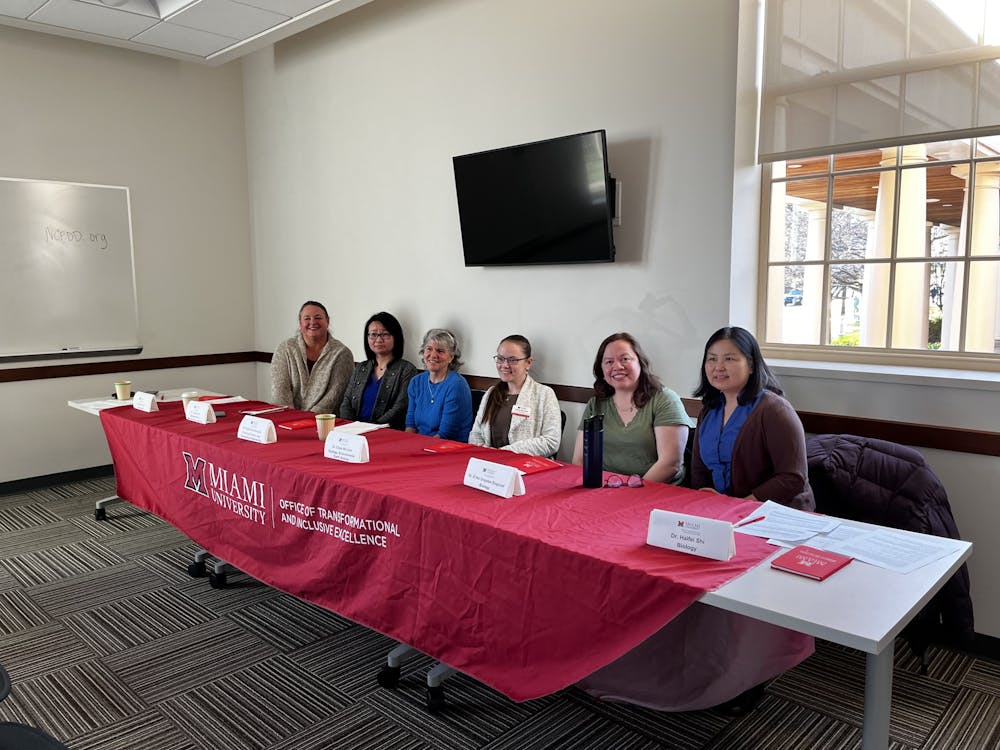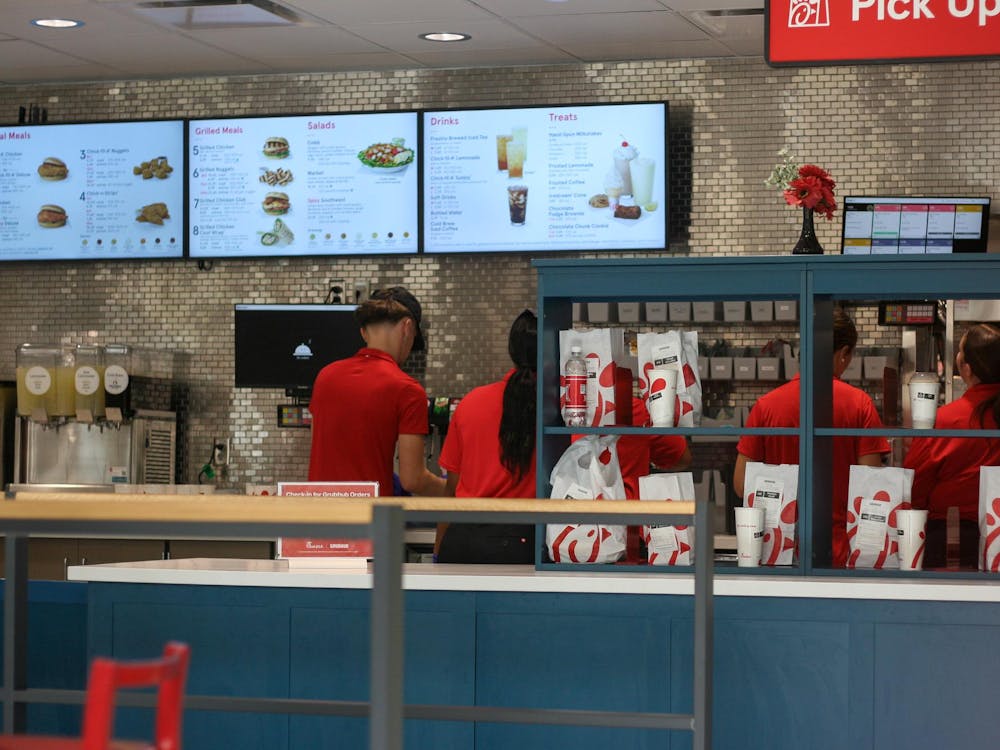Miami University students and staff gathered in Armstrong Student Center on March 19 to listen as a panel of women in STEM discussed their careers. The panel, moderated by associate mathematics professor Diana Cox, featured Miami faculty working in a wide array of STEM concentrations, ranging from geology to engineering.
As the audience settled, Cox began with introductions and asked the panelists what drew them to their respective fields. Common answers were inspiration from family and interest in the workings of the world from a young age.
Jinjuan She, an assistant professor in mechanical and manufacturing engineering, spoke about how her father’s love for cars furthered her passion for engineering.
Similarly, inspiration from her family of engineers influenced Catherine Almquist, a professor in chemical, paper and biomedical engineering.
While all of the women have found success in both the industry and academics, they took the time to speak about the challenges they’ve faced working in male-dominated fields.
“In STEM, there’s certain tasks that get put on women,” Claire McLeod, an associate professor of geology and environmental earth science, said. “Like asking to book the room, or asking to organize the lunch or asking to put the event on the calendar.”
McLeod recalled an instance where she was referred to as “the secretary” in a team.
“Secretaries have very important roles, but he did not mean it in that context,” McLeod said.
Building on similar experiences shared by the panel, Cox introduced British philosopher Miranda Fricker’s concept of epistemic injustice, defining the idea as “when you’re having a conversation with someone and they just don’t award you the expertise that you deserve.”
Despite the expertise of women in STEM, they only make up 35% of STEM fields, limiting the number of role models women beginning science-related careers may look up to. When asked about mentorship and role models, panelists stressed the importance of making mutually beneficial relationships with peers and finding role models of all backgrounds.
Cox spoke about the group of female peers she collaborated with when she was a student herself. Department of biology research associate Erika Grajales Esquivel found that her mother made a great role model during her childhood.
“Mentors are not in just one part of life,” Esquivel said.
Enjoy what you're reading?
Signup for our newsletter
Other panelists emphasized that positive relationships with male colleagues can also be greatly beneficial.
“I had a boss outside of academia who expected a lot from me,”Almquist said, referring to a male supervisor. “I think that was the first time I really felt respected.
Outside of the panel, female students beginning their journey in the STEM world find that in some ways, their experiences mirror those of the pioneering women who came before them.
Brianna Vondrak, a first-year student majoring in software engineering, was drawn to the field’s rigorous coursework.
“I wanted to choose a career that would challenge me,” Vondrak said.
Coursework is not the only challenge for Vondrak. In the United States, only 22% of software engineers are women, and at Miami, enrollment in the College of Engineering and Computing is 21% female.
“The biggest challenge I find in my male-dominated major is making space for myself," Vondrak said.
Lower female enrollment in STEM majors is not unique to Miami, universities throughout the country share similar statistics. Regardless, various women-centered student groups on Miami’s campus seek to even the playing field and provide opportunities for female STEM students.
The Society of Women Engineers and Association for Computing Machinery - Women hold career-oriented and social events to connect and inspire women in their fields. Similar organizations exist in other STEM concentrations, establishing a sense of community among women in male-majority majors.
Society of Women in Medicine brings together female students interested in pursuing medical careers, and Women in Physics does the same for female physics majors.
Vondrak says she’s been lucky to find a female senior in her major who has helped her greatly her first year at Miami, but hopes to see more black female mentorship in her field.
“For that to be capable we need to see more numbers,” Vondrak said. “I want more representation.”




